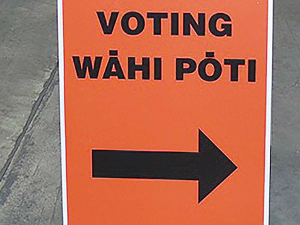OPINION: The country is in the midst of a frantic rush as politicians of all creeds, shapes and sizes emerge from the woodwork to ply the gullible public with a range of seemingly attractive but basically undeliverable promises.
These promises are flying around like paper in a Wellington southerly – going nowhere and often making little sense. There are questions about all these wonderful ideas being bandied about at a time when there are very serious doubts about the ability of any government to pay for such promises.
How many politicians are actually following what’s happening to the prices we are getting for our primary exports? Are they aware that lamb, beef and dairy prices have slumped and that on-farm costs have skyrocketed? Do they realise that when agriculture starts to fall over, so does the rest of the country?
How many of them have visited farms and orchards in Hawke’s Bay, Tairāwhiti and Northland and personally seen the devastation caused by cyclones Hale and Gabrielle and other lower profile, but equally destructive adverse weather events? Do they realise that it will take some farmers and orchardists more than a decade to get back to where they should be? And finally, do they realise that if farm incomes are down, the rural tax take will be lower, so there will less money for any government to spend?
Economist Cameron Bagrie rightly points out the tax take now has dropped markedly and will likely continue this spiral down unless export markets pick up and farm costs drop. Regardless of this, farmers and orchardists need capital to repair their land and infrastructure and this will take years.
So where will the money come from to pay for some of fantasies of desperately job seeking politicians? Will cutting jobs in the public service save money? Maybe yes, but unemployment will probably rise.
The offer of free dental care from a toothless political party is interesting, to say the least, while Auckland and Wellington – it seems – are going to get all the tunnels and bridges they don’t need.
So far, the election promises are mainly urban based, which is fine. However, the engine room of the country is not in the glass towers of the cities, but in the rural heartland.
Has any aspiring politician realised that yet and – better still – got any ideas on what to do next?











